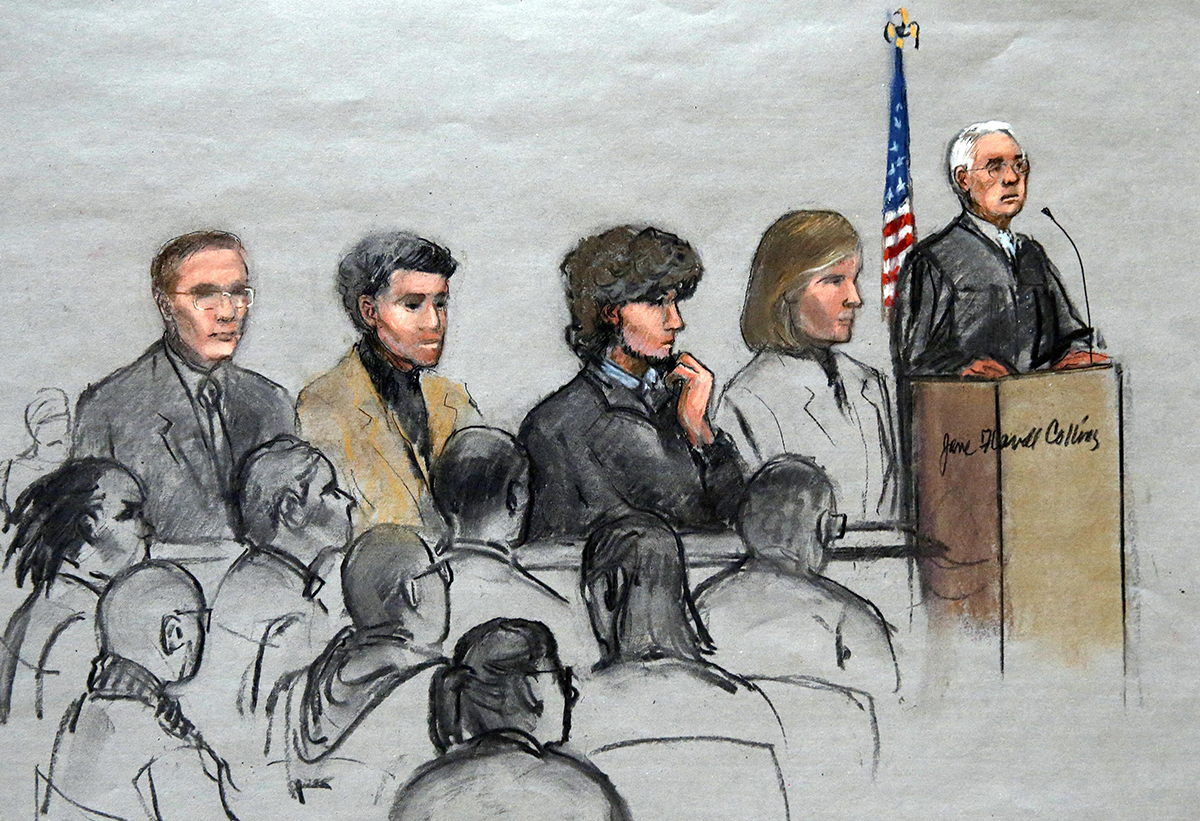Dzhokhar Tsarnaev’s Sentencing Phase Will Look Like Another Trial

COURTROOM SKETCH VIA ASSOCIATED PRESS
It was said many times this week that the rendering of a verdict in the Dzhokhar Tsarnaev trial would allow for “the real trial” or “the real drama” to begin. That’s partly because the first phase of the trial wasn’t “real” in that his guilt was never in question. But we also call the next phase, in which the jury determines Tsarnaev’s sentence, a “trial” because it will look very much like a second, complete courtroom trial.
Prosecutors and defense attorneys will make opening arguments. They will call witnesses, many of whom didn’t appear in the first phase. They will present evidence. (The rules for evidence in a sentencing phase are subject to fewer restrictions in this phase.) Then, the jury will deliberate, and render a decision. All this will begin next week and could last several weeks after that. Casual viewers might be confused scanning headlines and thinking, “Didn’t they already have a trial?”
The difference is that the testimony and evidence will be aimed at swaying the jury on the question of whether to put Tsarnaev to death. The prosecution’s evidence will seek to prove that he qualifies for the aggravating factors that make his crimes worthy of a death sentence. Those will include the impact his crimes had on victims, and you’re likely to hear from some of them in coming days. The defense, meanwhile, will present mitigating factors—reasons the jury might exercise leniency. For Tsarnaev, those might include his age, his troubled upbringing, and the influence of his older brother. The jury will then weigh the aggravating factors against the mitigating factors and decide Tsarnaev’s fate. It will take a unanimous decision for the jury to sentence death.
In the meantime, the community has already launched a debate about the right decision. The opinion sections of newspapers today are filled with meditations on this question. Do we exercise swift justice? Do we prove ourselves better than our enemies and exercise mercy? Is life in maximum-security prison actually more merciful than death? These are interesting, important questions to ask ourselves, but practically speaking, if the jury is ignoring media coverage as instructed, they’ll be little more than a separate, parallel conversation, playing out as a real trial of real consequence plays in the background.


